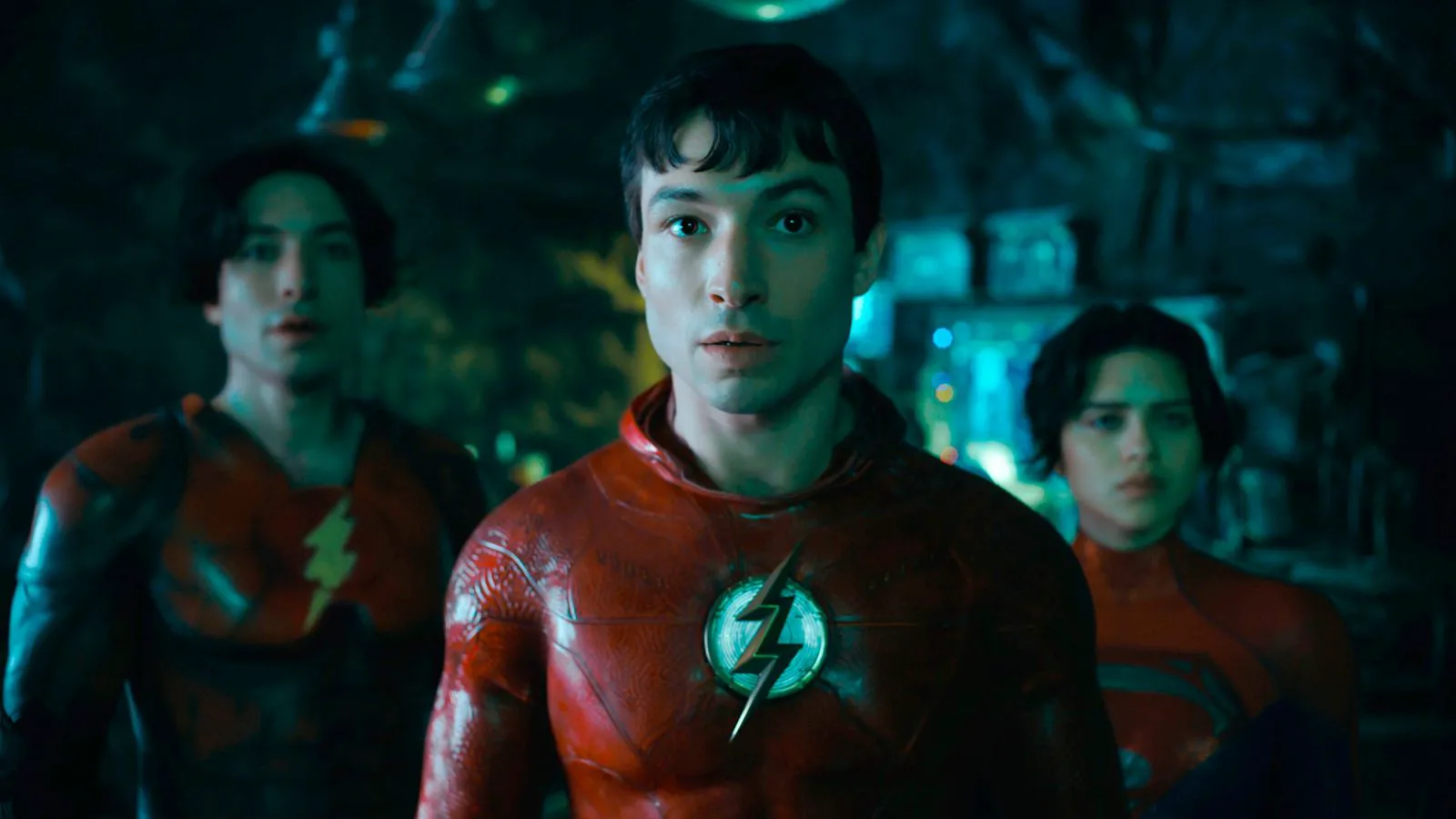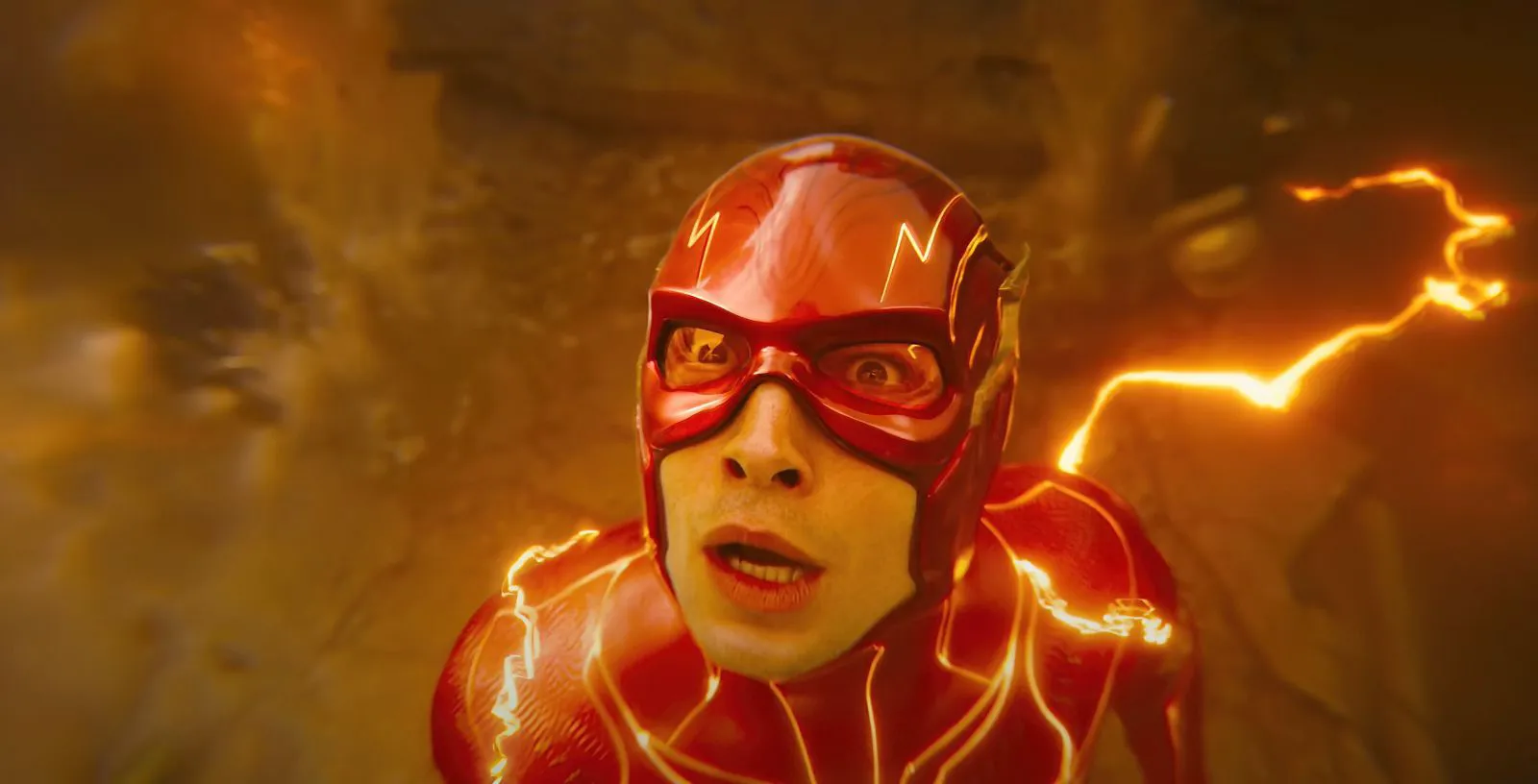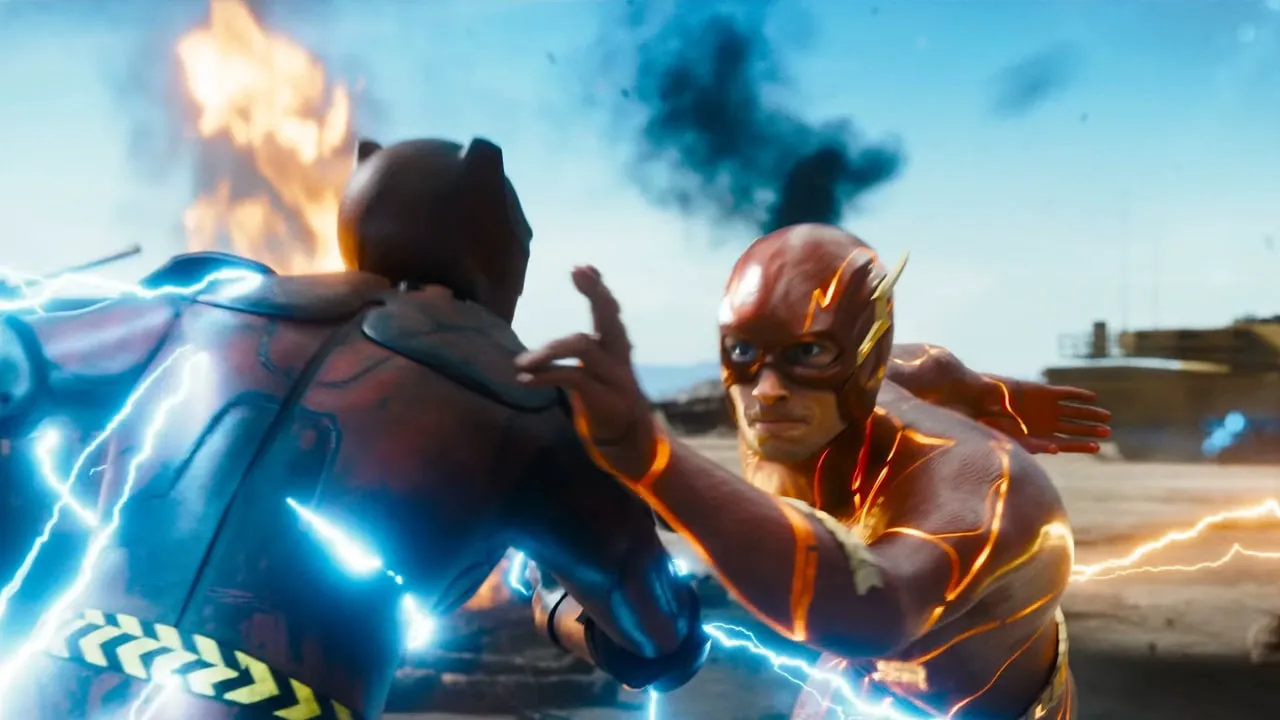The solo film about the world’s fastest superhero (move over, Quicksilver) can be confidently called one of the unluckiest in the DC cinematic universe. Like many blockbusters of the early 2020s, “The Flash” found itself in production hell due to coronavirus restrictions. And it got worse: the creative team behind the film changed at least five times. At various times, the creators of “The Lego Movie,” Phil Lord and Christopher Miller, the director of “The Mandalorian,” Rick Famuyiwa, the writers of “Horrible Bosses,” John Francis Daley and Jonathan Goldstein, and comic book author Grant Morrison were involved in the development of “The Flash.” After much tribulation, the director’s chair was taken by Andrés Muschietti, known, in particular, for the “It” dilogy, and the script was handed over to the British Christina Hodson (“Bumblebee”). However, “The Flash” suffered a new misfortune: several people accused the lead actor Ezra Miller of assault, the case went to court and mass public condemnation. Warner Bros. producers, who managed to invest a budget of $200 million in the film, decided not to risk it and postponed the premiere scheduled for mid-2022 to the summer of 2023. However, no one is forgotten, nothing is forgotten. A year later, the stigma around Miller’s name has not disappeared, and yet “The Flash,” unlike the “Titanic,” turned out to be unsinkable — critical assessments of Muschietti’s film are noticeably higher than other DC projects this year and are second only to Matt Reeves’ “Batman.” Although the achievements of “The Flash” in the global box office ($9 million in the first days of showing) still raise reasonable doubts about its box office success.

Ezra Miller as Barry Allen in a still from “The Flash”
The plot of “The Flash” is partly inspired by the legendary comic book Flashpoint — the main character Barry Allen (Ezra Miller) goes into the past in the hope of preventing the death of his mother Nora (Maribel Verdu), as well as saving his father Henry (Ron Livingston) from unjust accusation of her murder. Alas, everything does not go quite as planned: Barry ends up in an alternate universe in which the Justice League was never formed. The resurrected General Zod (Michael Shannon) arrives on Earth, and Batman (Michael Keaton) and Supergirl (Sasha Calle) help Barry in the battle against him.

Ezra Miller as Barry Allen in a still from “The Flash”
As expected, the script of “The Flash” is completely focused on the concept of meta universes and intertemporal movements, which significantly untie the authors’ hands, giving the opportunity to introduce many popular characters into the script, including superheroes of the Joel Schumacher and Tim Burton era. For most DC fans, the very possibility of seeing Michael Keaton or George Clooney in a bat suit is an absolute catharsis of fan service, for which the film was actually created. The idea of bringing together all the “DC-ish” Batmans (Ben Affleck’s hero also appears on the screen) and other representatives of the DC pantheon on one screen looked great on paper, but at the implementation stage it faced an insurmountable reality. In a recent interview, actor Michael Shannon admitted that his return to Zod did not “feel like a full-fledged role”: each key character of “The Flash” is given at best ten minutes of screen time, which allows you to enjoy the moment, but does not bring the expected satisfaction. The grotesqueness of Michael Keaton’s Batman is irretrievably lost, Nicolas Cage in a blue leotard does not have time to say a word. The expediency of using these images raises questions.

Still from “The Flash”
Fortunately, the script of “The Flash,” in which the enthusiasm and carelessness of John Francis Daley and Jonathan Goldstein miraculously survived, was able to outweigh the gloomy textures of Christina Hodon. Barry Allen is the most lively and witty member of the Justice League, his solo film should never have become a drama about revenge. Nevertheless, the hero goes through his stage of existential crisis, experiences the pain of loss and the savior complex, again and again returning to the most heartbreaking childhood memory. Like many modern adaptations of comics, “The Flash” tries to paraphrase the main theses of superheroism, resorting to the method of psychoanalysis. Behind the image of a joker in a ridiculous tight-fitting suit, an boy offended by an unfair fate, who suddenly imagined himself God, appears more and more often. The search for common ground with inner pain, as often happens, occurs in close contact with oneself — in the case of “The Flash” in the most literal sense.
And if we discard the tangible overlays with the technical side of Muschietti’s film, the visual range of which destroys the oversaturated CGI, absolutely artificial battle scenes and asynchronous musical accompaniment (we have already seen all this in Zack Snyder), then “The Flash” is quite capable of delivering some undiluted fan pleasure. Exclusively to those who all these years secretly hoped for a date with Ezra Miller, the renaissance of Michael Keaton’s superhero era or another impressive appearance of George Clooney.